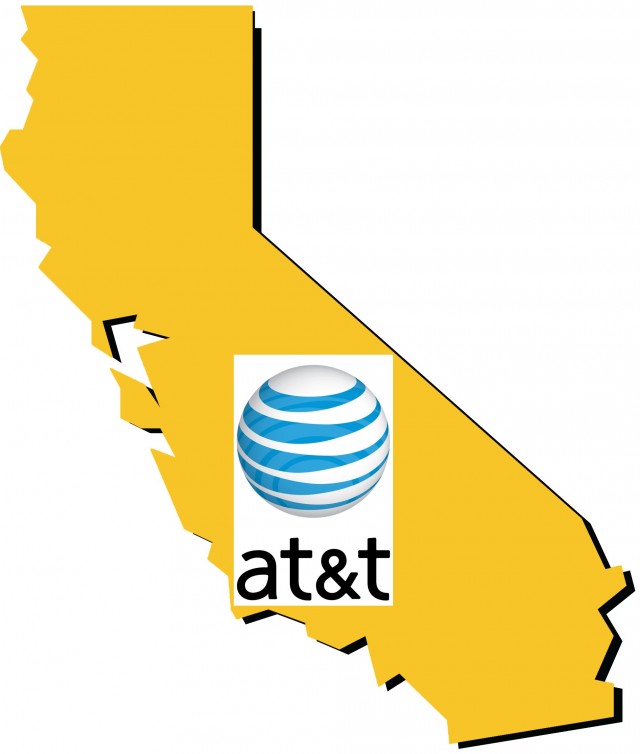 Delivering 21st century broadband speeds to rural Californians just doesn’t interest incumbent phone companies like AT&T and Frontier Communications, so the California legislature has been hard at work trying to entice upgrades on the taxpayer’s dime while reassuring ISPs they won’t have to break a sweat doing it.
Delivering 21st century broadband speeds to rural Californians just doesn’t interest incumbent phone companies like AT&T and Frontier Communications, so the California legislature has been hard at work trying to entice upgrades on the taxpayer’s dime while reassuring ISPs they won’t have to break a sweat doing it.
Steve Blum from Telus Venture Associates reports the California Advanced Services Fund (CASF), California’s equivalent of the FCC’s Connect America Fund (CAF) – is about to get a makeover sure to delight the two phone companies while throwing some cash at cable operators like Comcast, Cox and Charter to keep them happy as well.
The changes are encompassed in Assembly Bill 1665, sponsored by Assemblyman Eduardo Garcia (D–Riverside County), who counts AT&T as his sixth biggest contributor. The phone company has cut checks to the former mayor of Coachella not less than a dozen times amounting to $16,700. Garcia has also received special attention from AT&T’s lobbyists, who invited him to appear side-by-side with AT&T officials at press-friendly events where the phone company donated $10,000 to an abused women’s shelter and $25,000 to the Court Appointed Special Advocates of Imperial County.
Blum reports that the bill has been largely a placeholder until now as negotiations and dealmaking happened behind the scenes. The result is a corporate welfare bonanza that will raise $330 million for the CASF by reinstating a telephone tax on consumers and businesses than ended last year. Of that, $300 million will end up in the pockets of phone and cable companies, $10 million will go to regional broadband efforts, and the remaining $20 million will be designated for schools, libraries, and non-profit groups to promote broadband use, but only where providers already offer service or will shortly. In effect, that $20 million will turn public institutions into sales agents for ISPs.
The corporate giveaway bill will also sell Californian consumers down the river:
- The bill effectively replaces the FCC’s minimum definition of broadband (25/3Mbps) with California’s own minimum: 6/1Mbps — conveniently about the same speed telephone company DSL provides. As Blum writes, the language “makes 1990s legacy DSL technology the new 21st century standard.”
- AT&T and Frontier Communications get monopoly protection with exclusive CASF rights in areas where they currently receive federal CAF funding. This means both companies will get to double-dip federal and state money to expand inferior DSL or fixed wireless service and never have to worry about taxpayer funding going to their competitors or communities that might choose to build their own superior broadband networks. It virtually guarantees rural California will be stuck with sub-standard internet access indefinitely, and at the taxpayer’s expense.
- CASF funding has always been exclusively for infrastructure construction — building out the last mile to deliver internet access to consumers and businesses. But the new bill now allows the money to also be spent on “operating costs,” a rat hole where millions can quickly disappear with little improvement in broadband expansion or service.
- The new bill suggests that provider contributions — where providers agree to kick in a percentage (usually 30-40%) of their own money on expansion projects in return for getting taxpayer subsidies, is just too hard on struggling phone companies like AT&T and Frontier. Under the new proposal, this requirement should be eliminated.
- Individual homeowners would be able to apply for grants to get broadband connections, a direct nod to the state’s cable companies that routinely ask would-be customers just out of reach of the nearest cable line to pay tens of thousands of dollars to build a line extension. If approved, cable companies could set the installation price as high as the sky and get taxpayers to foot the bill, enriching themselves while avoiding any regulatory scrutiny.
Cable companies also get another wish granted — keeping subsidized broadband out the hands of many poor Californians that need connections for education, job-seeking, and training. The bill proposes to ban funding for broadband facilities in public housing. Cable companies have been irritated spending capital on broadband expansion to public housing only to find many of its customers would likely to qualify for their “internet for the poor” programs that cost as little as $10 a month.
Blum reports the language isn’t final and is likely to be amended as negotiations continue. A hearing of the Communications and Conveyance Committee at the State Capitol, Room 437 is scheduled for 1:30pm PDT today on the bill. You can listen to the hearing when in session here.


 Subscribe
Subscribe
“Individual homeowners would be able to apply for grants to get broadband connections, a direct nod to the state’s cable companies that routinely ask would-be customers just out of reach of the nearest cable line to pay tens of thousands of dollars to build a line extension. If approved, cable companies could set the installation price as high as the sky and get taxpayers to foot the bill, enriching themselves while avoiding any regulatory scrutiny.”
Sky high is right. I was quoted $535,000 for a Comcast connection in my neighborhood:
http://eldotelecom.blogspot.com/2015/07/early-indications-that-fcc-not.html
That is the “go away” price.